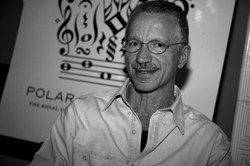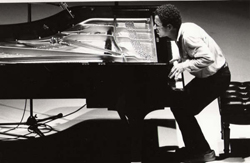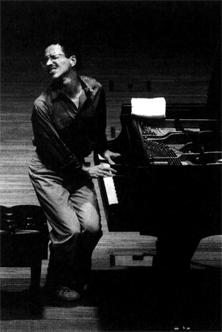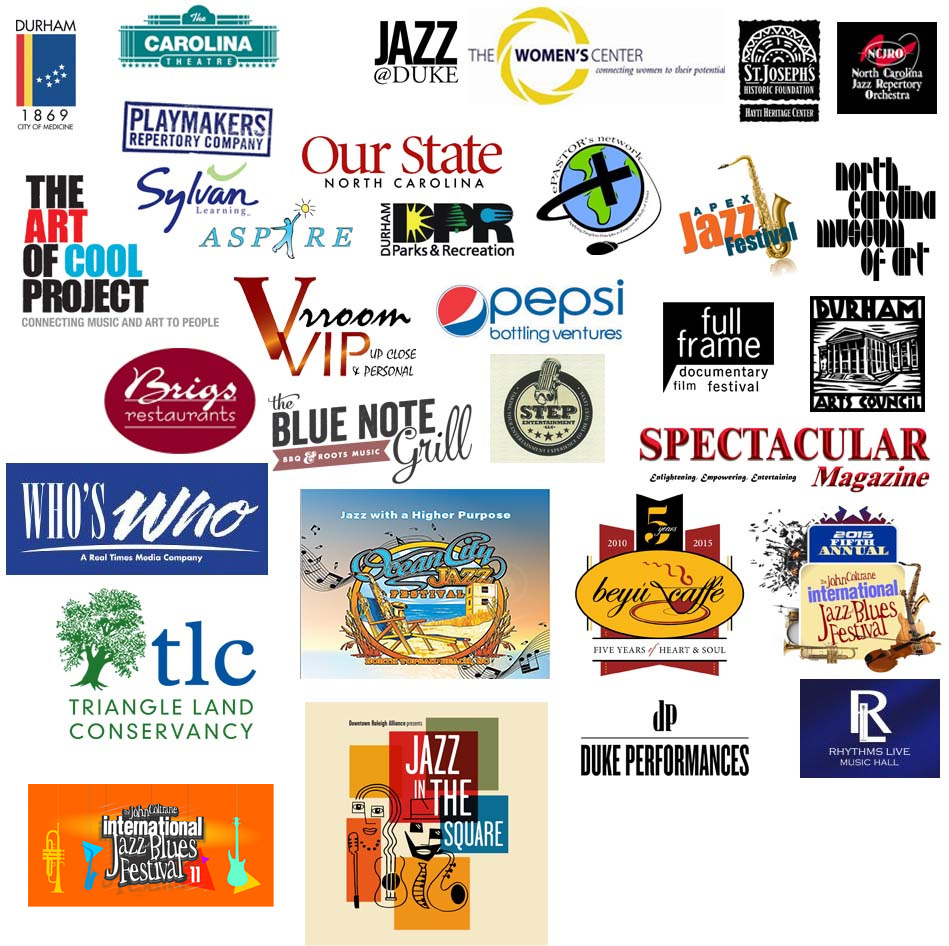Keith Jarrett
 Keith Jarrett was born in Allentown, Pennsylvania on May 8, 1945. He grew up in Allentown with significant exposure to music. In his teens, he learned jazz and quickly became proficient. Following graduation from high school, he moved from Allentown to Boston, Massachusetts, where he attended the Berkley School of Music and played cocktail piano. After about a year in Boston, Jarrett moved to New York City, where he played at the renowned Village Vanguard club.
Keith Jarrett was born in Allentown, Pennsylvania on May 8, 1945. He grew up in Allentown with significant exposure to music. In his teens, he learned jazz and quickly became proficient. Following graduation from high school, he moved from Allentown to Boston, Massachusetts, where he attended the Berkley School of Music and played cocktail piano. After about a year in Boston, Jarrett moved to New York City, where he played at the renowned Village Vanguard club.
While in New York, Art Blakley hired him to play with his Jazz Messengers band, and he subsequently became a member of the Charles Lloyd Quartet. The Lloyd quartet’s 1966 album Forest Flower was one of the most successful jazz recordings of the late 1960s. Jarrett also started to record as a leader at this time, in a trio with Charlie Haden and Paul Motian. Jarrett’s first album as a leader, Life Between The Exit Signs (1967), appeared around this time on the Vortex label, to be followed by Restoration Ruin (1968), which is easily the most bizarre entry in the Jarrett catalog. Not only does Jarrett barely touch the piano, he plays all the other instruments on what is essentially a folk-rock album, and even does all the singing. Jarrett soon recorded another trio album with Haden and Motian in 1968 called Somewhere Before, which recorded live for the Atlantic label.
When the Charles Lloyd quartet came to an end, Jarrett was asked to join the Miles Davis group after Miles heard Jarrett in a New York City club. First, Jarrett played electric organ and, after Chick Corea left the group, he also played the electric piano. Despite Jarrett’s dislike of amplified music and electric instruments, he stayed on out of his respect for Davis and his wish to work again with Jack DeJohnette. Jarrett can be heard on four of Davis’s albums including At Fillmore, The Cellar Door Sessions – 1970 and Live-Evil, which was largely composed of heavily-edited Cellar Door recordings. The extended sessions from these recordings can be heard on The Complete Cellar Door Sessions. He also plays electric organ in “Honky Tonk” on the Get Up With It album.
From 1971 to 1976, Jarrett added saxophonist Dewey Redman to the existing trio with Haden and Motian. The “American Quartet” was often supplemented by an extra percussionist, such as Danny Johnson, Guilherme Franco, or Airto Moreira, and occasionally by guitarist Sam Brown. The members would also play a variety of instruments. Jarrett was often being heard on soprano saxophone and percussion as well as piano; Redman on musette, a Chinese double-reed instrument; and Motian and Haden on a variety of percussion. Haden also produces a variety of unusual plucked and  percussive sounds with his acoustic bass, running it through a wah-wah pedal for one track (“Mortgage On My Soul,” on the album Birth). The group recorded for Atlantic Records, Columbia Records, Impulse Records and ECM.
percussive sounds with his acoustic bass, running it through a wah-wah pedal for one track (“Mortgage On My Soul,” on the album Birth). The group recorded for Atlantic Records, Columbia Records, Impulse Records and ECM.
Jarrett’s compositions and the strong musical identities of the group members gave this group a very distinctive sound. The group’s music was an interesting and exciting amalgam of free jazz, straight-ahead post-bop, gospel music, and exotic Middle-Eastern-sounding improvisations.
Jarrett’s first album for ECM, called Facing You (1971) was a solo piano date recorded in the studio. He has continued to record solo piano albums in the studio intermittently throughout his career, including Staircase (1976), The Moth and the Flame (1981), and The Melody at Night, With You (1999).
In the late 1990s, Jarrett was diagnosed with chronic fatigue syndrome (CFS) and was confined to his home for long periods of time. It was during this period that he recorded The Melody at Night, With You, a solo piano record consisting of jazz standards presented with very little of the reinterpretation in which he usually engages.
By 2000, he had returned to touring, both solo and with the Standards Trio. In May 2005, ECM released Radiance (recorded 2002), a recording of Jarrett’s first solo piano concerts following the CFS diagnosis which had threatened his performing career. In contrast with previous concerts, the 2002 concerts consist of a linked series of shorter improvisations. In 2004, Jarrett was awarded the Léonie Sonning Music Award.

